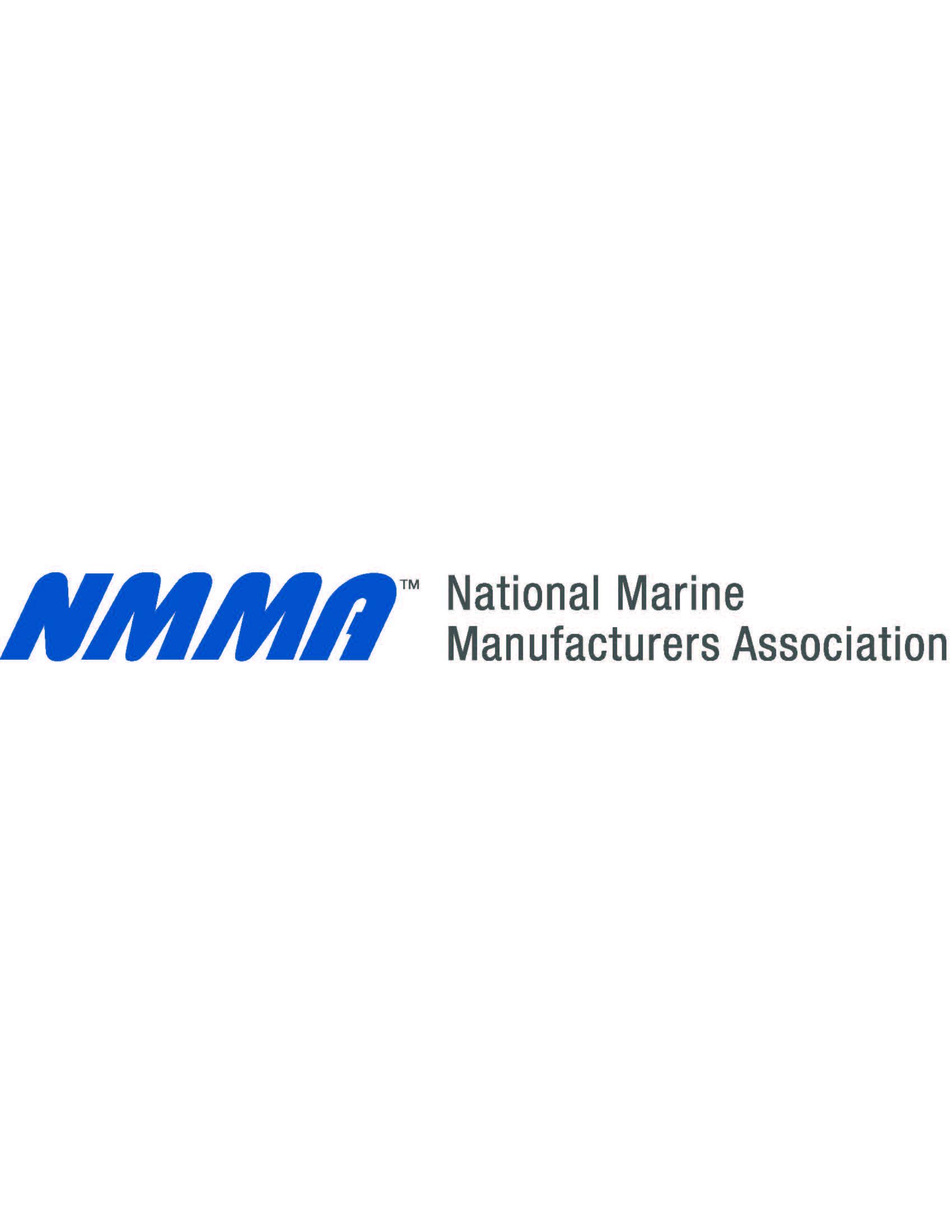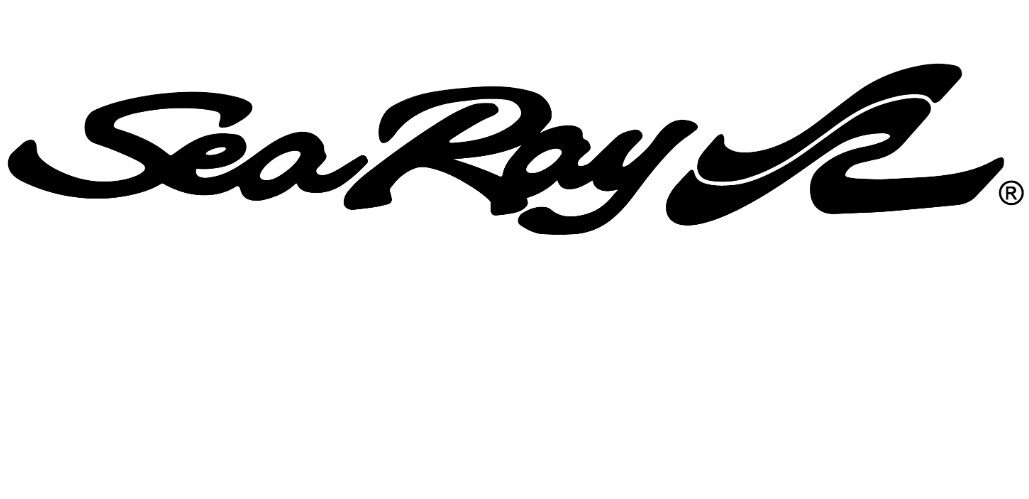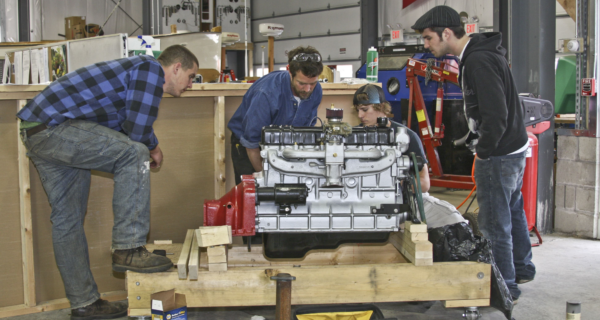NMMA recaps May state advocacy

While some state legislatures were slowing down last month, NMMA’s state advocacy efforts were heating up in others, with thirty-three states still in the middle of their legislative sessions and one in a special session. During this period, the recreational boating industry celebrated a major win in Florida, as the state’s legislature passed uniformed vessel titling legislation.
Ranging from highly active to monitoring, on any day NMMA’s state advocacy team is engaging on multiple issues across all 50 states. Below is a comprehensive accounting of the association’s state advocacy efforts in the past month.
Highly Active
- Plastic Packaging Reduction – Requirements to reduce single-use packaging are on the rise across the United States. These types of programs can be aggressive and disruptive to the boating industry.
- California – Senate Bill 54 and Assembly Bill 1080, the California Circular Economy and Plastic Pollution Reduction Act, would require a 75 percent reduction in ten years in the quantity of single-use plastics and packaging sold in the state. They would also require all single-use plastics and packaging to be recyclable by 2030. These bills are supported by environmental groups as well as the state’s league of cities and others that are impacted by both the steady increase in solid waste, dwindling recycling capacity and environmental impact. NMMA’s advocacy team is part of a broad coalition actively opposing the bill.
- Vessel Titling – Securing strong boat titling legislation that protects consumers and small businesses from fraud progressed in key states.
- Alabama – The Uniform Certificate of Title Act (SB152/HB303) is expected to be on the floor for action in both chambers of the Alabama general assembly this week.
- Florida – NMMA’s efforts to improve Florida’s existing boat titling laws was passed by the legislature and is now awaiting Governor DeSantis’ signature. The new legislation provides powerful consumer protections, as well as a number of changes to create uniformity with other states. It is supported by boating and legal experts – including the U.S. Coast Guard, BoatUS, NMMA, and the state’s Department of Motor Vehicle and legislative leaders. If signed into law, Florida will be the first top 10 boating state to adopt the Uniform Certificate of Vessels Act. NMMA is grateful for the unwavering support and hard work of Florida State Rep. Jaydor Williamson (HB0475) and Florida State Senator Ed Hooper (R) SB676.
- Boating Access and Infrastructure – Boating access can take many forms, from building and maintaining boat ramps to instituting laws that apply reasonable restrictions where needed. This may include efforts to prevent the spread of aquatic invasive species (AIS) to directing adequate funds for infrastructure, channel markers, and dredging.
- Florida – The Florida legislature failed to enact HB529/SB436 before it adjourned, leaving in place overly-restrictive rules on how Florida counties can use funds it raises from boating registration fees. The legislation, strongly supported by NMMA, was poised for final passage, however it failed to advance after an amendment was added to ban the use of plastic straws.
- Oregon – On May 16, the Oregon Senate passed Senate Bill 47, which would create an access permit for non-motorized vessels. This access permit envelopes the former AIS permit and broadens its use by creating a waterway access fund. The fund will go towards non-motorized access projects and educational programs. The bill has now been assigned to the House Ways and Means Committee.
- Wake Surfing– The sale of wake boats rose 12 percent year over year in December 2018, making it the fasted growing segment of the recreational boating industry. However, its popularity has drawn potentially damaging attention from homeowners, lawmakers, and regulators.
- New Hampshire – House Bill 137 is awaiting Governor Chris Sununu’s signature into law. This bill will create a study committee to assess the impacts wake boats may have on the waters of New Hampshire. The 21-member commission includes representatives from government, homeowners, boat dealers and owners, and law enforcement. Prior to lobbying efforts led by the Watersports Industry Association and NMMA, the commission’s makeup excluded most input from the boating community.
- Montana – Following Governor Steve Bullock recently signing HB 608 into law, drivers trailering tow boats with ballast tanks will soon be stopped at the border. Those who can prove their boat is clear of AIS or assert they will not launch within the state can pass through. Anyone who plans to use their wake boat in the state faces mandatory decontamination.
- Idaho – Following significant opposition from boaters and businesses and direct testimony from NMMA, the Valley County, Utah Commission tabled indefinitely its plan to require wake boats to be 1,000 feet offshore, and personal watercraft (PWC) 300 feet from shore. Personal Watercraft Industry Association hired lobbyists to help oppose these overly-restrictive regulations, and is prepared to do so again should plans to enact onerous restrictions resurface.
- Fishing – Fishing legislation and regulations are highly impactful to the boating industry. NMMA monitors fishing bills to make sure that they do not negatively affect recreational boating.
- California – Assembly Bill 1387, which would establish a 12-month fishing license in California, passed the House Appropriations Committee, however the committee added an amendment that would raise its price to 130 percent of the current cost. The high price will likely defeat the purpose of legislation, which was to help stop the precipitous decline in fishing participation in the state. The coalition supporting the original bill, which includes NMMA and 20 other fishing and business organizations, will be working with other members of the coalition on next steps.
- North Carolina – On May 7, the Senate passed the Marine Fisheries Reforms bill, legislation that attempts to shift policymaking authority for coastal fisheries resources management from the Marine Fisheries Commission to the Marine Fisheries Division of the North Carolina Department of Environmental Quality. This is diametrically inconsistent with the way that wildlife resources have historically been managed in the state of North Carolina. The bill will now move through the process in the legislative process in the House of Representatives.
Moderately Active
- Taxes – Tax caps or sales tax eliminations have been a common theme during this legislative session. Tax cap programs are prevalent throughout the east coast, causing states to constantly tweak their tax laws to try and keep their boating industries competitive.
- Connecticut – Governor Lamont’s budget eliminated the 2.99 percent tax rate for new boat sales and maintenance that was passed in 2018. This elimination would reinstate a 6.35 percent sales tax on the boating industry. The Finance, Revenue and Bonding Committee requested the Connecticut Marine Trades Association create a Diversity Plan explaining how the MTA will get minorities and people in urban areas involved in workforce issues. NMMA is hopeful that the Committee will support the workforce plan and continue to keep the 2.99 percent tax rate.
- Massachusetts –Senate Bill 1734 would repeal sales tax on boats built or rebuilt within the state of Massachusetts, which currently has the highest sales tax rate in New England.
- Texas – House Bill 4032, which would cap sales tax on boats to $18,750, took major strides forward in recent weeks as it was passed by the House and is now pending a final vote in the Senate. A similar cap is in place in numerous states, including Missouri, New York, New Jersey, Connecticut, Maryland, Georgia and Florida.
- Outdoor Recreation – Outdoor recreation offices play a critical role in increasing outdoor recreation participation by working with local communities to improve infrastructure, coordinating recreation efforts statewide, and promoting the benefits of engaging in outdoor recreation among the citizens of their state.
- Minnesota – House Bill 2220, establishing an Outdoor Recreation Office in Minnesota, was included in the Environment and Natural Resources Omnibus bill and is currently in conference negotiations. This office would be created under “Explore Minnesota Tourism” with the intent to further increase outdoor recreation as well as promote and attract outdoor recreation industry businesses.
- Wisconsin – Governor Tony Evers has stated that creating a Wisconsin Office of Outdoor Recreation under the Wisconsin Department of Tourism is a priority for his administration. NMMA and outdoor recreation stakeholders are working with Wisconsin Tourism to support their efforts in a budget request to fund the office. The Tourism budget is pending review from the Joint Finance Committee.
- California– Governor Jerry Brown vetoed a bill in 2018 that would have created the California Office of Outdoor Recreation, however the coalition supported introduction of Assembly Bill 1111 this year and is coalition is working to support its passage.
- Engine cutoff switches
- Texas – The House has passed a bill that would require boat operators to use automatic cutoff switches, if they were installed by the engine manufacturer. SB 210 is now under consideration in the Senate.
- Workforce Funding
- Massachusetts – Senate Amendment 290, which amends the Senate Budget Bill SB3, includes a renewal for workforce funding to the Massachusetts Marine Trades Association. NMMA submitted testimony supporting this amendment and the work that the MTA continues to do.
Monitoring
- Wake Surfing
- Wisconsin and Minnesota – Homeowner’s associations and local governments have attempted in the past two years to restrict or ban wake surfing in a few lakes. Given the general sense of concern about the use of wake boats, these states merit close attention. In Wright County, Minnesota, the Department of Natural Resources did not approve Wright County’s plans to expand their pilot program. Currently, three lakes require boats to be inspected at a central location and the county had proposed expanding the inspection to nine lakes total.
- Taxes
- California – Assembly Bill 147 would increase the existing Amazon law for online sales in the state of California. This bill comes in the aftermath of the Wayfair v. South Dakota ruling last summer. Every state now has the right to review and update their existing online sales tax law.
- Associations, Boards and Meetings
- Aquatic Nuisance Species Task Force – Libby Yranski participated in the first day of the Task Force’s bi-yearly calls. The Task Force discussed the Strategic Plan and heard a presentation on how the Vessel Incidental Discharge Act would affect how states manage aquatic nuisance species.
- Atlantic Intracoastal Waterway Association – Responding to the support of 16 Members of Congress representing states from Virginia to Florida, the House Appropriations Committee voted to increase funding for dredging related to navigation, small harbors and inland waterways by $105 million to $223 million. While there are many steps left before a budget is enacted, and not all of the increase would be dedicated to the IWC, the increased commitment shows the power of an association of businesses and users to influence Congressional support. The ICW continues to have sections with silting significant enough to hamper passage of boats with drafts deeper than 5 feet.




